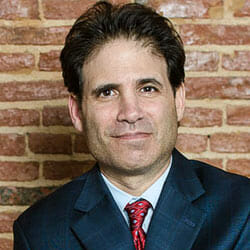“Medical malpractice” is a term that has become commonly used, but many people have questions about whether a negative medical outcome falls under the definition of malpractice. We hope the following answers to frequently asked questions about medical malpractice will be helpful to you. For an evaluation of your particular circumstances, call Steve Heisler, “The Injury Lawyer,” at (410) 625-4878. Steve has helped many people in Maryland and the District of Columbia secure justice when they have been harmed by a negligent healthcare provider.
What does the legal term “medical malpractice” mean?
Medical malpractice refers to the failure of a healthcare provider to meet the standard of care of a reasonably competent professional, leading to the injury or death of a patient. The actions of the medical provider are compared to those of what other “reasonable” providers would have done in a similar situation. If the standard of care has been deficient, or negligent, there could be a basis for a medical malpractice lawsuit.
Are doctors the only ones who can be guilty of medical malpractice?
By no means. Just as there are many types of medical practitioners and facilities involved in healthcare, there are many which could be responsible for rendering negligent care to a patient, including these:
- Hospitals
- Outpatient surgery centers
- Clinics
- Urgent treatment centers
- Nurses
- Lab technicians
- Physical therapists
- Psychologists
- Chiropractors
- Dentists
- Pharmacists
- Nursing aides.
What are some of the mistakes that could be medical malpractice?
- A doctor who has prescribed the wrong medication or a pharmacist who has dispensed the wrong medication could be responsible for an overdose or a serious adverse reaction.
- A medical professional who has failed to correctly diagnose a condition or who unreasonably delayed in doing so could be found guilty of medical malpractice.
- Errors made in surgery account for a large percentage of medical malpractice claims. Surgical errors include such grievous things as operating on the wrong part of the body or leaving a surgical implement or sponge in the site of the incision.
- Physicians or technicians who misread or misinterpret test results such as CT scans, X-rays, MRIs or lab tests can cause serious harm.
- When emergency room personnel fail to correctly evaluate patients or order necessary diagnostic tests, a serious condition can be mistaken for a simple complaint, with disastrous consequences.
If I didn’t get the results of a surgery or other medical procedure that I was hoping for, does that mean medical malpractice has occurred?
Not necessarily. There are so many variables at play in each patient and each procedure that it’s more complicated than just assuming the disappointing results were the fault of the provider. Remember, to prove medical malpractice you must show that the doctor or other healthcare provider deviated from the acceptable standard of care and that the patient was actually harmed. On the other hand, an outcome that was dramatically different from what you were expecting could be a red flag someone was negligent. An experienced attorney like Steve Heisler will know what questions to ask to evaluate the likelihood that medical malpractice occurred. If so, Steve will bring in highly qualified experts to prove your claim in court.
What kind of compensation can be obtained through a medical malpractice lawsuit?
A successful medical malpractice action may include the following damages:
- Payment of past and future medical costs incurred because of the medical negligence
- Payment of income or wages that were lost or will be lost because of inability to work
- Compensation for pain and suffering, disfigurement and mental anguish
- Loss of consortium by a spouse
- And, in exceptional cases, punitive damages to punish egregious behavior.
Is there a deadline for filing a medical malpractice claim?
As with most legal claims, there are statutes of limitation that vary according to the jurisdiction and the circumstances of the event. Call The Injury Lawyer with your questions about medical negligence in Baltimore or elsewhere in Maryland or the District of Columbia. Steve Heisler will be glad to give you a free evaluation of your claim and explain the time limits that may apply to it.
At the Law Offices of Steven H. Heisler, we give our best effort to every client’s case. You can read about some of the verdicts and settlements we have obtained here. Call (410) 625-4878 to see how we can help you.

Attorney Steve Heisler
Steve Heisler decided in 1996 that he was going to focus his law practice exclusively on injury cases. Since then, he has been representing injured people against insurance companies, disreputable medical practitioners and Big Pharma, and doing it with compassion, honesty and level-headed rationality. [ Attorney Bio ]

